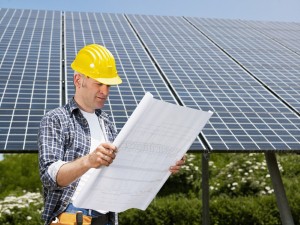Energy Careers Outlook
 U.S. energy consumption is expected to increase at an average annual rate of about 1.2 percent through 2025, according to the Energy Information Administration, a statistical agency within the U.S. Department of Energy. Even though production of oil, petroleum, and natural gas is expected to increase through 2008, the demand still outweighs the supply, so the United States will continue to rely on imports. Short-term energy issues include concerns for energy shortages, economic slowdown, and volatile energy markets. Key long-term issues include the supplies and prices of fossil fuels, the development of U.S. electricity markets, technology improvement, and the impact of economic growth on projected energy demand and carbon dioxide emissions through 2025.
U.S. energy consumption is expected to increase at an average annual rate of about 1.2 percent through 2025, according to the Energy Information Administration, a statistical agency within the U.S. Department of Energy. Even though production of oil, petroleum, and natural gas is expected to increase through 2008, the demand still outweighs the supply, so the United States will continue to rely on imports. Short-term energy issues include concerns for energy shortages, economic slowdown, and volatile energy markets. Key long-term issues include the supplies and prices of fossil fuels, the development of U.S. electricity markets, technology improvement, and the impact of economic growth on projected energy demand and carbon dioxide emissions through 2025.
While the number of oil refineries in the United States is gradually declining, their overall production capacity is increasing due to better efficiency. Since the Clinton administration, the U.S. Bureau of Land Management has leased large areas of Alaska’s National Petroleum Reserve to the oil industry for oil exploration. However, much of the oil exploration and refining activity has gone overseas, particularly to offshore Africa, South America, the Middle East, the former republics of the Soviet Union, and the North Sea.
Natural gas production is expected to increase at an average annual rate of 1 percent through 2025. Net imports are also expected to increase, primarily from Canada. Two of the four existing U.S. liquefied natural gas import facilities have announced plans to reopen and three of the four have announced plans to expand their capacity.
Because domestic companies cut way back on exploration and production of oil and gas in the 1980s after worldwide oil prices declined, and because cost-cutting measures were instituted, projections to 2014 for engineers do not show an increase. However, the elevated overseas oil production and the plans for drilling in Alaska may result in a slight increase in the demand for workers willing to travel.
Coal production is expected to increase at an average annual rate of 1.5 percent through 2025, but since European demand for coal is declining, U.S. coal exports will also decline.
Job opportunities in the wind energy field will grow significantly, as wind power capacity will triple or even quadruple in the next decade. Positions that will need to be filled include those of windsmiths, technicians, engineers, avian specialists, electricians, and construction workers. Employers will also need to fill manufacturing, research, development, and management jobs. The American Wind Energy Association estimates that if the United States increases its current wind energy capacity 15-fold, which they do not believe to be unreasonable, our country could stand to gain as many as 150,000 new jobs in this area.
Careers in Energy:
- Chemical Engineers
- Chemical Technicians
- Chemists
- Coal Miners
- Divers and Diving Technicians
- Energy Conservation Technicians
- Energy Transmission and Distribution Workers
- Engineers
- Environmental Engineers
- Geological Technicians
- Geologists
- Geophysicists
- Groundwater Professionals
- Industrial Engineering Technicians
- Industrial Engineers
- Industrial Machinery Mechanics
- Line Installers and Cable Splicers
- Mechanical Engineering Technicians
- Mechanical Engineers
- Metallurgical Engineers
- Metallurgical Technicians
- Meter Readers, Utilities
- Mining Engineers
- Nuclear Engineers
- Nuclear Reactor Operators and Technicians
- Occupational Safety and Health Workers
- Operating Engineers
- Petroleum Engineers
- Petroleum Refining Workers
- Petroleum Technicians
- Petrologists
- Power Plant Workers
- Radiation Protection Technicians
- Renewable Energy Careers
- Roustabouts
- Surveyors
- Surveying and Mapping Technicians
Related Career Fields:
For More Information:
- American Nuclear Society
- American Petroleum Institute
- American Public Power Association
- American Solar Energy Society
- American Wind Energy Association
- Geothermal Energy Association
- National Hydropower Association
- National Renewable Energy Laboratory
- Nuclear Energy Institute
- Society of Exploration Geophysicists
- U.S. Department of Energy
